So if anyone is in Christ, there is a new creation: everything old has passed away; look, new things have come into being! –2 Corinthians 5:17
An Invitation to Lent
Lent, the forty-day period between Ash Wednesday and Easter (excluding Sundays), originated in the fourth century as a season of preparation for those seeking to be baptized into the Christian faith at the Easter Vigil. Over time, it evolved into a period in the Church’s liturgical year set aside for self-examination, prayer, and repentance during which the whole community of faith prepared themselves to enter more fully into the joy of Christ’s resurrection at Easter.
Lent is more than just a season of fasting and abstinence; it is a time set aside for spiritual transformation. The Orthodox theologian Alexander Schmemann describes Lent as “the school of repentance which alone will make it possible to receive Easter not as mere permission to eat, to drink, and to relax, but indeed as the end of the ‘old’ in us, as our entrance into the ‘new’ life we have in Jesus.”
Lent, then, is rooted in an essential aspect of what it is to be a Christian: repentance, metanoia in Greek, turning one’s life around, putting off the old self and putting on of the new self, which is made real by the resurrection of Jesus. It is an intensification of that movement which should be the spiritual rhythm of our lives: a continuous turning away from sin and reorientation toward God. Lent is about conversion, so that, on Easter Day, we can truly exclaim, “Behold, all things are new!”
One aspect of Lent which is rarely mentioned nowadays is the communal. In earlier times, Lent was a discipline taken on by an entire community or even whole societies. It was something which everyone did together, and the rhythm of life was adjusted to accommodate this discipline. Everyone supported everyone else in the Lenten journey. One might think of this as a kind of spiritual teamwork, and like anything done as a team it bound people together and helped create community.
Today the communal aspect of Lent has been almost completely lost. This book seeks to recover that essential part of our spiritual life and tradition, offering a common path for the parish of St. John’s to walk side-by-side through this season of metanoia. Our theme for Lent this year is “New Creation.” May this be our shared purpose as we embark on this holy journey of faith together.
Our Lenten Theme: Becoming the New Creation
The biblical proclamation of a New Creation provides a framework for how we understand the whole narrative of Christian belief. As a “theological current” found throughout the Bible, New Creation signifies the transformation of the created order through the reconciling act of God. While its roots can be traced to Hebrew prophets like Isaiah—who declares the coming of “new heavens and a new earth” (65:17)—the theme of New Creation is most fully developed by the Apostle Paul, who proclaims that Christ’s resurrection from the dead heralds the beginning of a new eschatological age:
“So if anyone is in Christ, there is a new creation: everything old has passed away; look, new things have come into being! All this is from God, who reconciled us to himself through Christ and has given us the ministry of reconciliation; that is, in Christ God was reconciling the world to himself, not counting their trespasses against them, and entrusting the message of reconciliation to us.”
Here and elsewhere, Paul describes the New Creation not as a future event, but as an already-accomplished reality. Past, present, and future are united in the risen Body of Christ (Eph 1); those who are “in Christ” already belong to the New Creation (2 Cor 5:17) and are therefore able to “walk in newness of life” (Rom 6:4). At the same time, Jesus’ followers join the rest of creation in “eager longing” for the day when God will deliver the whole created order from “bondage to decay” (Rom 8:19, 21). In other words, Christians inhabit a strange relationship to time: we live in the confidence that our future is secured by Christ, but in the present we remain time-bound, limited, and even subject to death.
Yet the New Creation is not some far-off world into which we will escape at the last days. The central narrative of Christian belief is often framed as: Creation, Fall, Redemption, Escape. By contrast, New Creation theology affirms that God is remaking this world. In this framework, the central narrative of Christian belief is: Creation, Re-creation, New Creation.
Thus, New Creation is a powerful theme for our Lenten journey because it speaks to the heart of what this season is all about: conversion. And since the New Creation is this world, conversion means learning to more deeply inhabit the redemption that Christ has wrought for us in his sacrifice of love. New Creation theology affirms that God is constantly making things new, and that we are called to participate in that sacred work. May our Lenten journey together be one of reconciliation and renewal, both personally and communally, as we seek to more fully inhabit the New Creation as the always-available gift of our all-loving God.
Dr. Devon Abts
Resources
Journeying Together Through Lent
Seasonal Prayerbook
Lent Meditations 2025 For the Middle School and High School Students
A Lent Journey for children and families
Lecture by Rowan Williams


